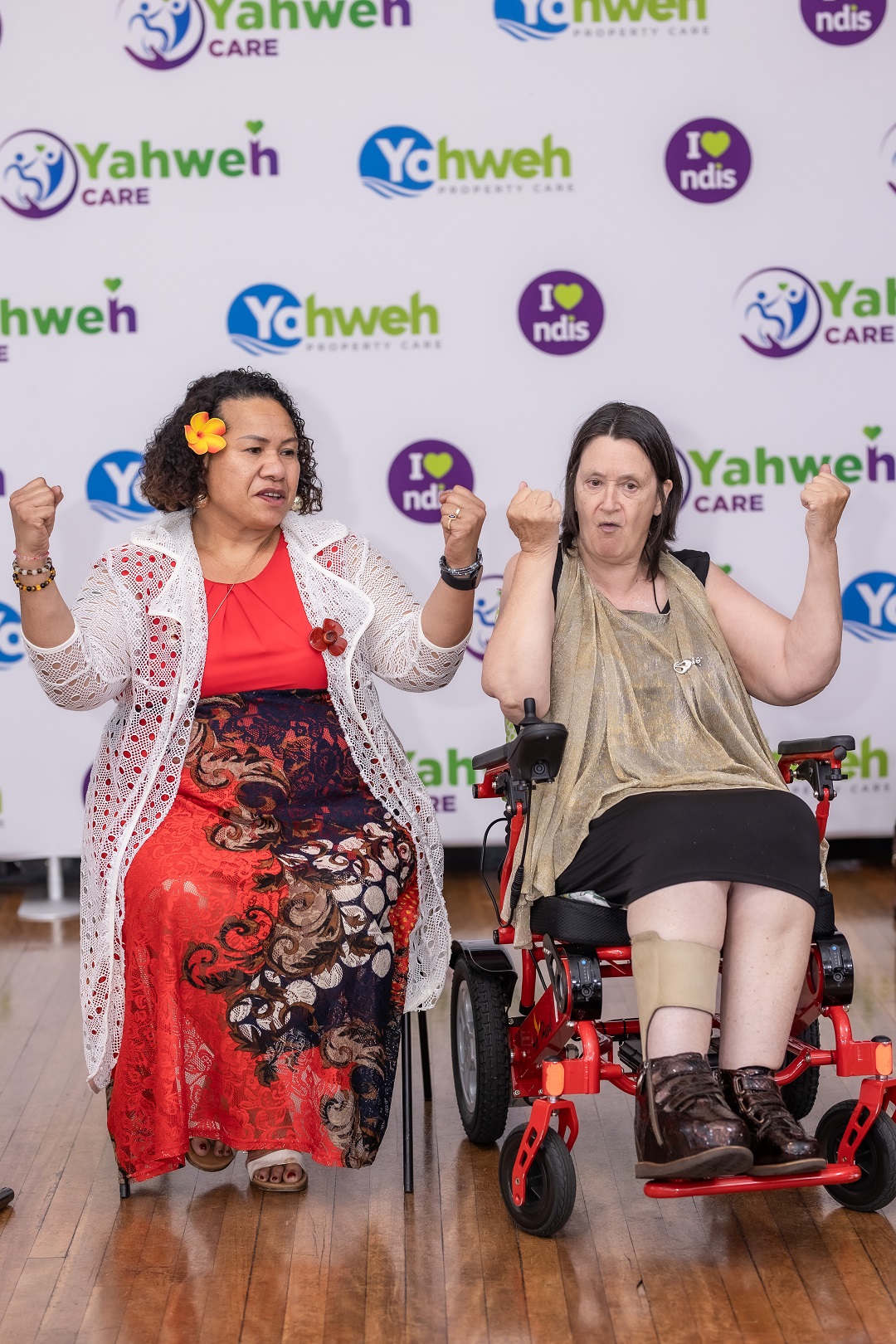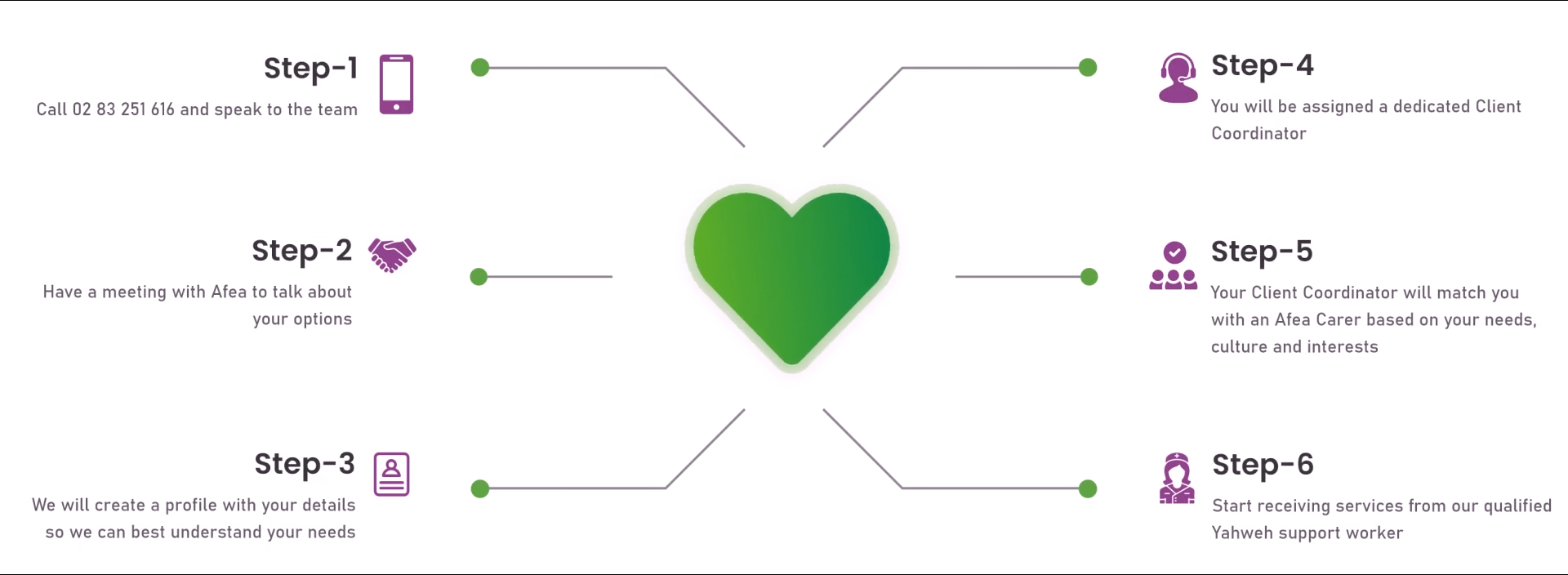SWITCH TO YAHWEH CARE
Providing care and holistic approach to NDIS participants aiming to create opportunities for you to live your best life.
Contact UsThe National Disability Insurance Scheme (NDIS) offers specialized and customized assistance to those with disabilities. Among them are those who need complex, high-intensity care. Participants who require assistance from professionals with specific training, expertise, and experience because of medical or behavioral issues are eligible for high-intensity support.

Daily personal tasks involving more complicated or high-risk support needs are referred to as high-intensity support. These services are usually provided by staff members who have undergone further training to oversee particular health-related responsibilities and guarantee the participant’s security and welfare.
They are necessary when a participant’s care involves medical or behavioral complexities that require closer attention, specific health-related skills, or support for clinical tasks.
These services may include:
With proper care, these aids guarantee that those with greater needs can live freely and safely.
NDIS members with complicated health requirements or habits that call for specialized care are eligible for high-intensity services. These services are crucial for those who require expert help to maintain their health and well-being or whose everyday personal tasks carry a high risk of harm if not done correctly.
High-intensity support services may be available to participants with complex medical needs, requires behaviour support, or health issues. This comprises people who have:
The following individuals may require high-intensity support:
Subcutaneous injections or specialized drug management by qualified personnel are required.
Support professionals with the necessary training and credentials (such as a registered nurse) must provide high-intensity support in order to safely help individuals with complicated care needs. Because they can do more dangerous activities and need clinical awareness, these workers provide more than just basic personal care.
High-intensity support is provided by skilled and experienced disability support workers who have received additional training to guarantee safety and high-quality care. Providers must follow the NDIS Practice Standards and High-Intensity Support Skills Descriptors, which specify the necessary competencies for providing these services.
A worker must possess the following in order to provide High-Intensity Support under the NDIS:
During delicate care duties, appropriately qualified health practitioner are essential to preserving the participant’s comfort and dignity as well as their health and safety. They prioritize giving families and caregivers peace of mind while assisting participants in living freely with the appropriate care.

The NDIS funds high-intensity support for participants with complicated care needs that require qualified support staff. These supports, which fall under the Assistance with Daily Life area of the participant’s Core Supports budget, are necessary for day-to-day life.
Usually, these supports fall under the Core Supports budget’s Assistance with Daily Life category in a participant’s NDIS plan. The intricacy of the participant’s care and their specific assistance needs determine how much money is allocated.
In order to be eligible for funding for High-Intensity Support, the participant needs to:
Selecting a licensed NDIS provider is one of the most crucial choices you can make when a participant needs High-Intensity Support. These providers provide higher safety, professionalism, and peace of mind, particularly in cases with complicated medical demands.
Registered providers’ knowledge and compliance processes enable them to provide high-intensity support safely and efficiently. Participants and their family members can rest easy knowing that they are routinely audited to the NDIS Quality and Safeguards Commission standards.
Partnering with participants and their support health system maximizes the effectiveness of high-intensity care. Providing care that honors each person’s rights and preferences requires person-centered planning, open communication, and cultural awareness.
In order to accomplish complex duties like tracheostomy care, PEG feeding, and seizure treatment, registered providers must hire specialized support staff. The NDIS High-Intensity Support Skills Descriptors are used to guide staff training.
Strict guidelines about participant safety and rights, infection control, medication management, incident reporting, and complaint resolution are among the NDIS Practice Standards that they must adhere to.
Based on the requirements and objectives of each participant, registered providers employ customized care plans. This guarantees consistent, courteous care and is suitable for the patient’s culture.
The NDIS Quality and Safeguards Commission monitors licensed providers in case something goes wrong. Participants have obvious avenues to voice their opinions, raise issues, or file complaints.
Knowing that their loved one is being cared for by a provider who adheres to stringent regulations, funds employee training, and is dedicated to providing safe, high-quality services can provide family members more peace of mind.

For NDIS participants with complex health or behavioral requirements, high-intensity assistance is essential to their ability to live independently, safely, and with dignity. These services go beyond providing care; they collaborate with participants, support networks, and qualified experts.
By collaborating with licensed NDIS providers and selecting trained support workers, participants may get the safe and excellent care they are entitled to. No matter how complicated their needs are, people can feel empowered to reach their objectives through NDIS. With the tailored plans, supporting participants and maintaining their health becomes the priority.
To ensure your plan considers your needs, get in touch with Yahweh Care for your NDIS Support Coordinator or planner if you or someone you care for needs high-intensity support.
Providing care and holistic approach to NDIS participants aiming to create opportunities for you to live your best life.
Contact Us


